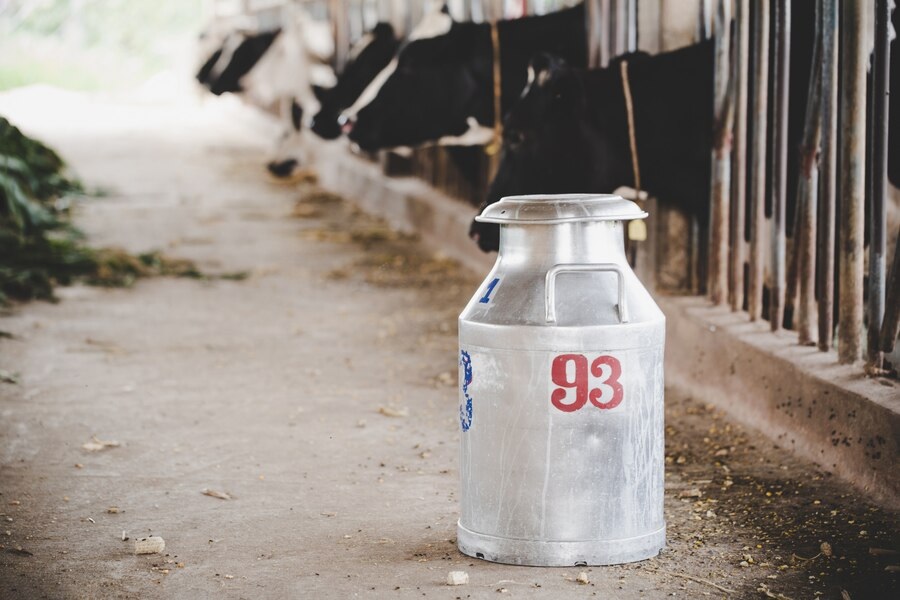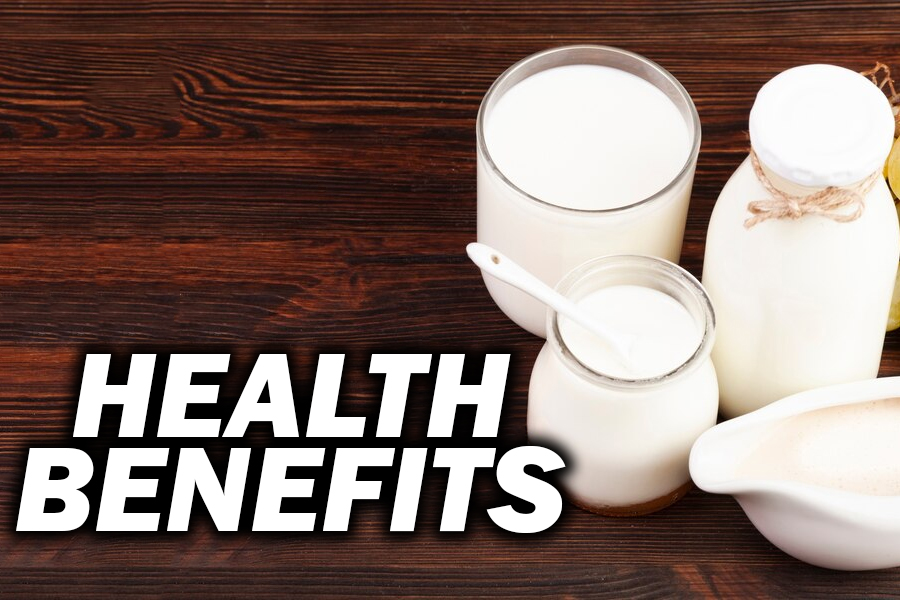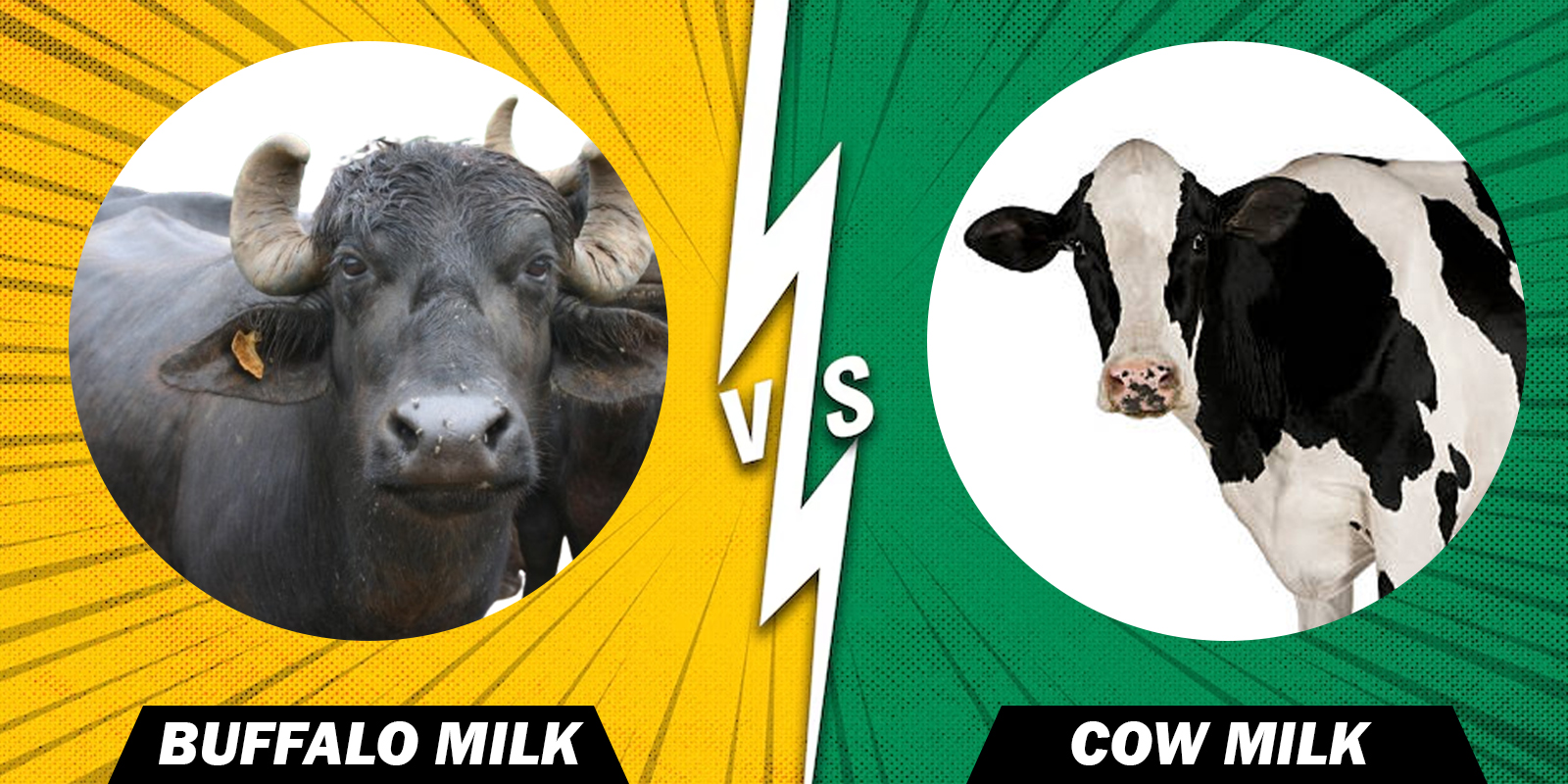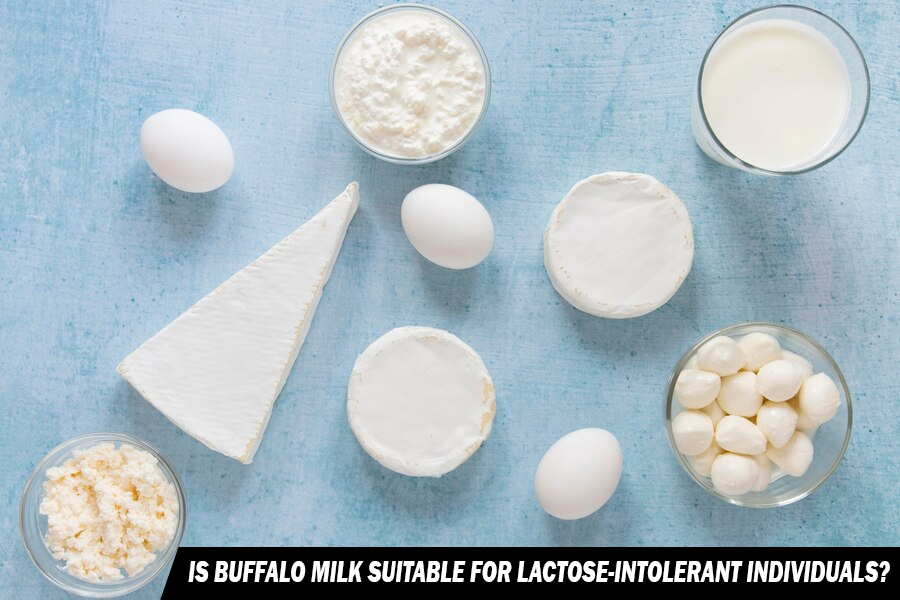Wellhealthorganic Buffalo Milk Tag: Everything You Need to Know

Recently, buffalo milk has gained much attention all over the world due to its rich nutritional composition and various health benefits. Are you interested in how buffalo milk compares to cow’s milk? You are at the right place. In this well-researched guide, we’ll dive into the wonders of buffalo milk, all in terms of nutritional benefits, ways to put it into your diet, and why healthy-conscious individuals choose it. Ready to discover everything related to wellhealthorganic buffalo milk tag.
Introduction to Buffalo Milk

Buffalo milk has been consumed worldwide in numerous cultures over ages. It is as rich in flavor and thick in texture but leaves no match when it comes to nutritional aspects. Hence, it forms a niche as an excellent choice for people desiring diversity in their dairy intake. Buffalo milk is a staple in most Asian and European countries since it is used extensively to produce mozzarella cheese, yogurt, and butter.
Buffalo milk has been gaining constant popularity as people consume it due to its amazing nutritional content. This dairy product is rich in minerals such as calcium and proteins with vitamins. So if someone needs a little extra in their diet, it would serve for them just right. Wellhealthorganic buffalo milk tag spares no pages in its popularity by well-healthy individuals who have grown more into wholesome food supply.
Nutritional Profile of Buffalo Milk

High Protein Content
Comparatively, buffalo milk has more protein than cow’s milk. This makes it an excellent choice for a muscle-building diet or after severe exercises. Protein is essential in repairing the body, and it enhances the immune system. Therefore, incorporation of buffalo milk in your life will prove beneficial for health.
Rich in Vitamins and Minerals
It is also very rich in calcium. If drank, it would strengthen bones and make the teeth strong. This therefore reduces the chances of osteoporosis. It’s also rich in other nutrients, including potassium, phosphorus, and magnesium. The minerals are also important for body functions, giving good muscles, electrolyte balance, and overall well being.
Health Benefits of Buffalo Milk

Wellhealthorganic buffalo milk tag is full of many health benefits, most of them stronger than the ones found in cow’s milk. Here are some of the most significant:
Boosts Immunity
Since buffalo milk contains higher amounts of bioactive compounds and antioxidants, it can help to strengthen your immune system. Antioxidants in buffalo milk are agents that prevent free radicals from causing extreme inflammation throughout your body and make your body better equipped to combat certain illnesses.
Supports Heart Health
Wellhealthorganic buffalo milk tag is replete with fats but beneficial fats that can be safely ingested to improve the heart in moderation. The fats also help to balance cholesterol levels and support the cardiovascular system.
Supports Digestion
This is less heavy to digest for some and has a structure of fats and content of certain enzymes that are easier to work with than cow’s milk. Certain proteins within buffalo milk can also increase health within the gut, improving digestion and reducing discomfort within sensitivities to regular dairy.
Buffalo Milk vs. Cow Milk

Perhaps the most common question is how buffalo milk compares to cow milk. Let’s break it down:
Fat Content and Creaminess
Wellhealthorganic buffalo milk tag contains a lot more fat than cow’s milk, which makes it much creamier. This creaminess makes it quite ideal for thick rich dairy products like yogurt and butter. However, this may be not ideal for everyone since there are those who would look at a low-fat product.
Nutritional Density
Wellhealthorganic buffalo milk tag contains more protein and calcium than cow’s milk. Although cow’s milk contains several vitamins and minerals, buffalo milk is much more nutrient-dense than it. It becomes a perfect substitute for those persons who want to increase their consumption of vital nutrients on a daily basis.
Comparison of Pros and Cons: Buffalo Milk vs. Cow Milk
| Sr# | Aspect | Buffalo Milk (Pros) | Buffalo Milk (Cons) | Cow Milk (Pros) | Cow Milk (Cons) |
|---|---|---|---|---|---|
| 1 | Nutritional Value | Higher in protein and calcium | Higher in fat, which may not be ideal for all | Contains balanced nutrients suitable for daily consumption | Lower in some nutrients like calcium compared to buffalo milk |
| 2 | Fat Content | Creamier, higher fat content for rich dairy products | May not be suitable for those on a low-fat diet | Lower fat content, making it lighter | Less creamy, which may not be ideal for making rich dairy products |
| 3 | Protein Content | Contains more protein, beneficial for muscle repair | Higher protein might be too much for people with specific health conditions | Contains adequate protein for regular consumption | Less protein compared to buffalo milk |
| 4 | Digestibility | Easier to digest for some people with sensitive stomachs | Higher fat content could slow digestion | Easier on the digestive system due to lower fat content | May cause discomfort for those with lactose intolerance |
| 5 | Lactose Content | Contains slightly less lactose than cow’s milk | Still contains lactose, may cause issues for lactose intolerant individuals | Suitable for most, but contains more lactose | Can cause lactose intolerance symptoms in sensitive people |
| 6 | Immune Support | Rich in antioxidants, boosts immunity | Not suitable for people with fat-related health concerns | Provides immunity-boosting nutrients, like vitamin D | Lacks certain bioactive compounds found in buffalo milk |
| 7 | Heart Health | Contains healthy fats that support heart function | High-fat content may raise cholesterol levels | Contains omega-3 fatty acids, which support heart health | Can contribute to cholesterol issues if consumed in excess |
| 8 | Bone Health | High calcium content strengthens bones | Excess calcium intake may not be suitable for all | Good for bone health, provides adequate calcium | Lower calcium levels than buffalo milk |
| 9 | Flavor | Rich, creamy, slightly sweeter flavor | Heavier, which may not suit everyone’s taste preferences | Lighter and more neutral flavor, widely accepted | Less creamy, may taste bland in some recipes |
| 10 | Versatility in Cooking | Ideal for making thick, rich products like mozzarella and yogurt | Too creamy for some lighter dishes | Great for everyday cooking, lighter dairy products | Not as suitable for producing thick dairy products |
| 11 | Shelf Life | Naturally lasts longer due to higher fat content | Requires proper refrigeration, shorter shelf life when opened | Longer shelf life due to pasteurization and lower fat content | Shorter shelf life compared to buffalo milk when fresh |
| 12 | Energy Levels | Provides more energy due to higher calorie content | High calories may not be suitable for weight watchers | Lower in calories, good for maintaining healthy weight | May not provide enough energy for those needing high-calorie intake |
| 13 | Allergies | Fewer people are allergic to buffalo milk | Still a potential allergen for some individuals | More widely consumed, fewer allergic reactions | Higher incidence of dairy allergies than buffalo milk |
| 14 | Environmental Impact | Less common, contributes to sustainable dairy farming | Requires more land and resources to produce | Easier to produce in mass quantities | Higher carbon footprint due to large-scale production |
| 15 | Price | Often more expensive due to limited availability | Higher cost compared to cow’s milk | Generally more affordable and widely available | Lower price may reflect lower nutrient density |
| 16 | Texture | Thicker, richer texture, great for desserts | May be too thick for drinking straight | Smoother, lighter texture suitable for drinking | Lacks the rich texture needed for certain dairy recipes |
| 17 | Organic Options | Available in organic varieties, often more nutritious | Harder to find, especially in non-native regions | Widely available in organic and non-organic forms | Organic varieties may still lack certain nutrients |
| 18 | Children’s Consumption | Beneficial for growing children due to its high nutrient content | May be too rich for young children | Widely accepted for children, easy to digest | Lower in certain key nutrients for rapid growth |
| 19 | Cultural Relevance | Used traditionally in many cultures for ceremonial foods | Limited to certain regions, less common in Western diets | Widely accepted globally, part of many diets | Less important in some cultural diets than buffalo milk |
| 20 | Health Impact | Supports immune system, muscle growth, and bone health | Higher fat intake may not be suitable for those with certain health conditions | Generally promotes balanced health, especially heart health | Lacks some bioactive compounds that enhance overall immunity |
How to Incorporate Buffalo Milk into Your Diet
You can incorporate buffalo milk in a variety of delicious ways. Here are some recipes you can try and find out how to get the best benefits:
Smoothies and Shakes
Buffalo milk is very great for smoothies and shakes. It has a creamy texture, so it blends in well with fruits, greens, or even other healthy ingredients. This makes possible an easy meal or snack rich in nutrients through its addition.
Homemade Yogurt and Cheese
Wellhealthorganic buffalo milk tag has been used to produce a lot of rich flavors dairy products such as mozzarella cheese and yogurt. These are best supplements to salads, sandwiches, and snacks, giving consumers an indulging yet healthy alternative to the usual store-bought ones.
Best Practices for Storing Buffalo Milk

Storage of buffalo milk requires proper handling to ensure that it stays fresh and safe for consumption. Here are best practices:
Refrigeration is Key
Like any other dairy product, buffalo milk should always be refrigerated. It should be kept in a tight, air-tight container to avoid contamination and the happening of early spoilage.
Check Expiry Dates
The expiry date should always be checked prior to its consumption. Even when properly refrigerated, buffalo milk has a smaller shelf life than processed cow’s milk because it contains higher amounts of fats.
Is Buffalo Milk Suitable for Lactose-Intolerant Individuals?

One of the common questions, it is one person to another. Though Wellhealthorganic buffalo milk tag contains lactose, individuals have been reported to be lactose intolerant and yet can consume buffalo milk pretty well as compared to cow’s milk. This could be due to its fat structure and the enzymes present in buffalo milk.
Lactose Content
Since buffalo milk is intrinsically lactose-deficient compared to cow milk, intense lactose intolerance will still be presented. Still, some individuals affirm reduced symptoms when ingested due to their composition of natural fat and proteins.
Organic Buffalo Milk: What You Need to Know

Organic buffalo milk is demanded by more health-conscious consumers. Wellhealthorganic buffalo milk tag is free of synthetic pesticides, hormones, and antibiotics. Thus, for these consumers concerned with health and the environment, this cleaner choice will surely impress them.
Benefits of Organic Buffalo Milk
Organic buffalo milk supports the sustainable farming of them and seems to have higher contents of nutrients. The cows will also be fed more on grass and stay in relatively better health conditions to ensure better quality milk.
Where to Buy High-Quality Buffalo Milk
Buffalo milk is always hard to come by, mainly because in some regions it is less common than cow’s milk. Here is where you can get it:
Local Farmers’ Markets
Organic buffalo milk is also available at most farmers’ markets. It’s a great way to source local milk and know it is as fresh as possible, minus additives you do not want.
Specialty Grocery Stores
Some grocery stores specialize in organic or international products and may carry buffalo milk. Call ahead or check their website to confirm availability.
Conclusion and FAQs
Buffalo milk is compared to cow’s milk in nutritional contents, with high amounts of protein, calcium, and helpful fats. Such a healthiness presented with creamy texture and versatility shows it as one of the most desirable options for diet improvement. Buffalo milk in life will let you enjoy various health-related benefits while encouraging organic and sustainable farming.
FAQs
Is buffalo milk better than cow’s milk?
Buffalo milk is rich in nutrients such as protein and calcium, which means it can be termed a nutrient-dense product; the other disadvantage, however, is that buffalo milk contains a higher percentage of fat, which may not please everyone.
Can buffalo milk help with muscle recovery?
Yes, with the presence of richer proteins, buffalo milk is good for muscle repair and recovery after exercise.
Is buffalo milk safe for children?
Buffalo milk is generally good for children but should only be advised to be consumed by a pediatrician, especially the younger ones or those who have dairy sensitivities.
Can I freeze buffalo milk?
Yes, you can freeze buffalo milk, and its contents might separate when thawed. Stir well before drinking.
How does buffalo milk taste?
The taste is also creamier and has a slightly sweet taste, making buffalo milk an excellent option for rich dairy products such as cheese and yogurt compared to cow’s milk.




